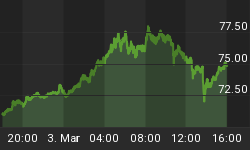"Bread, cash, dosh, dough, loot, lucre, moolah, readies, the wherewithal...It's amazing what a tenured professor can earn these days..."
"MONEY IS TRUST, not metal," says Niall Ferguson, Harvard egghead and knit-browed global media star, in his latest book and TV series, The Ascent of Money.
Or rather, that's what the TV schedulers are claiming here in London. Ferguson actually says that "Money is not metal. It is trust inscribed." But Latinate words - like the Latin root of "credit", meaning "I believe" - make for gawky soundbites, all out-sized limbs and acne-scars where smooth straight-to-camera head-shots are required.
So to save you (and ourselves) the trouble of watching Monday night's opening instalment on Channel Four, let's not bother with the subtlety of Ferguson's argument...all 432 pages and $29.95 of it.
Nobody else does. Least of all, it seems, the economic historian himself. Last month, in a dry, academic paper on "monetary rules & policy credibility in developing countries", he happily wrote of the time-inconsistency theorem and the credibility effects of hard pegs. He even used the odd Latin phrase - inter alia - to move his argument forwards.
But on telly...?
"Bread, cash, dosh, dough, loot, lucre, moolah, readies, the wherewithal...Call it what you like, money matters. To Christians, love of it is the root of all evil. To generals, it is the sinews of war. To revolutionaries, it is the chains of labor..."
This prime-time bathos - taken verbatim, apparently, from the opening shots of tonight's episode one - leads pretty much every review in the British press. Expect the same cut'n'paste journalism when The Ascent of Money hits PBS early in 2009. Because it works, as Niall's progress so clearly shows. A seven-figure income demands low demotic if a tenured professor is to escape the lecture hall and really start pulling in the ackers, brass, bucks, coinage, needful, spondulicks, rhino et cetera...
"What's the most lucrative work you've ever done?" asked a gushing hack from the London Times last month.
"It would probably have to be the consulting and advising work I have done for investment banks and hedge funds," came the reply. "In the glory days of 2006, demand for a historical financial perspective was very high and there was a point when it was not impossible for me to get $100,000 for a one-hour speech at some extravagant hedge-fund manager conference in an exotic location."
Hot on the heels of this easy money bonanza - a signal of just how over-inflated faith in debt, credit and hedge funds had become - the real prize showed up: a chance to help make policy inside the White House! Not since Ronald Reagan promised "Morning in America" had a TV star got so close to the Oval Office. Least of all a Scotsman with a British passport and no vote in the US election.
But sadly for Prof. Ferguson - and unlike his arch-air-time enemy, Simon Schama, who went to the trouble of forcing his non-vote on the world with a TV series and a supporting book-tour - he picked the wrong side. And sadly for anyone hoping to start trusting in money again soon, he still can't get past a soundbite first chewed up and spat out at the end of the 1990s.
"The twilight of gold appeared to have arrived," claimed Professor Ferguson, stepping out of the lecture hall and into his gypsy fortune-teller's tent, in his 1999 tome, The Cash Nexus. "True, total blackout is still some way off," he forecast, and "gold has a future, of course, but mainly as jewelry."
Roll on a decade or so, and the Gold Price in Dollars, Euros, Sterling and pretty much everything else has trebled and more. Yet still the lesson eludes our hero. Trust, not metal, only acts as money for as long as that trust is not abused. The "historic anomaly" of gold's previous surge - peaking at $850 an ounce for a few brief moments early in 1980 - was only felled by double-digit interest rates, paid by the Volcker Fed to Dollar-cash savers.
Yet in a speech supporting John McCain made this April, Ferguson thanked Ben Bernanke's "pretty fancy footwork" for making this only the worst financial crisis since the 1970s, not the 1930s. Indeed, as he told the Toronto Globe & Mail in October:
"The one thing we have learned from the Depression is that you must avoid massive bank failures. It was really the collapse of the banks that caused the great contraction. We've managed, through the aggressive efforts of the Fed, to stave off that nightmare scenario. We've repressed this crisis. That's why I call it the Great Repression."
Is there no self-doubt, no dark midnight of the TV schedules, in amongst the library stacks? "Well, I have been debating today whether Gold Bars really are the answer," Ferguson confessed to the New York Magazine last month. (Like the London Times, it also wanted to know more about his money than his research.)
But "they probably aren't," he decided. Contrarian investors! As you were.
















